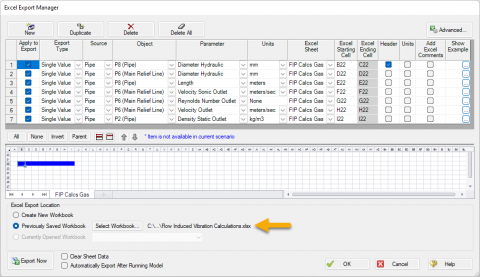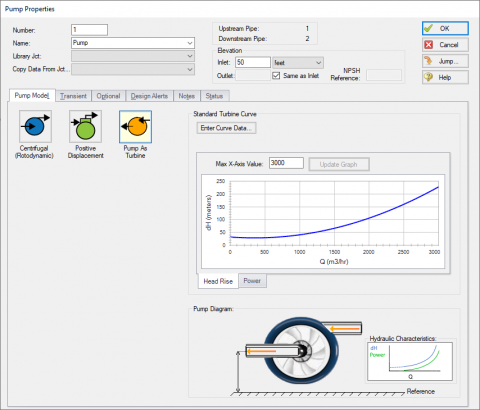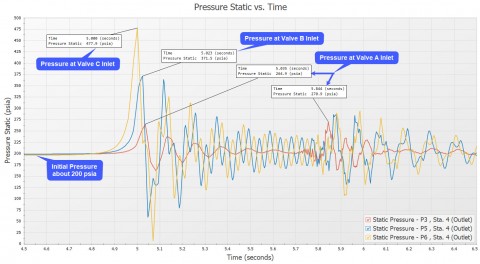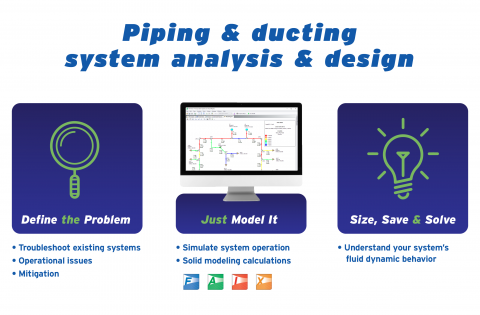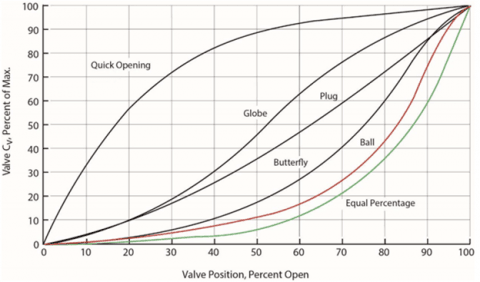AFT Blog
We at AFT work hard. Why?
We put a lot of thought into our software features. Why?
We try hard to listen to what you, our customers, tell us you want. Why?
The answer to all three questions is the same...
The pistons, or diaphragm of a reciprocating (positive displacement) pump causes a cyclical variation, typically in some sinusoidal form, of both flow in pressure in a piping system. The magnitude varies, depending on the type and design of the pump. What is acceleration head? Acceleration head is the energy required to change the velocity of the liquid in the system from an at rest, or zero condition, to some non-zero value. To help us understand acceleration head a little more clearly, you could compare it to a race car. In a drag race, the race car will accelerate to some maximum velocity,...
We are all shaped by our experiences as engineers. Our early experiences as young engineers are especially influential.
I first worked in the aerospace industry for five years and then the nuclear industry for two years. At each of these companies we relied heavily on a handbook written originally in Russian by a Russian engineer. I am talking about the Handbook of Hydraulic Resistance by I.E. Idelchik. This book is my "go to" book on any unusual pipe system configuration hydraulic calculations and, especially, with calculations at tees and wyes.
What is BEP & why is it important? Every pump has an ideal range of operation where the pump is most efficient. The peak of the efficiency curve is known as the best efficiency point (BEP). Determining how far your pump is operating from its BEP is critical to increasing pump reliability and efficiency as well as meeting API 610 recommendations. AFT Fathom models pump curves with efficiency data and will determine the margin between the simulated operation of the pump and the actual best efficiency point. Our friends at Empowering Pumps shared an article titled, "Some Effects of Operating Pumps Away from Best Efficiency Point" which...
The time was almost 30 years ago and it is fair to say I was not quite out of the "still wet behind the ears" stage for an engineer. I had been working in industry for about three years and I was just given a project that would change my career direction and, in fact, my life. The project? I was assigned to evaluate a new concept Pogo suppressor on a cryogenic rocket engine liquid oxygen (LOX) feedline.
Last week I saw Star Wars: The Last Jedi. For the third time. If you have not seen it by now you probably do not care about it much, but nevertheless rest assured there are no spoilers here for The Last Jedi. I first saw it on opening day in December. Usually I would only see a Star Wars movie twice in theaters. But a circumstance came up with one of my sons and I ended up seeing it a third time. I am definitely a fan of Star Wars.
What comes to mind when you hear the expression “planning for failure”? For some, it carries the negative connotation that failure is the direct result of a design – intentionally or otherwise. Benjamin Franklin said; “If you fail to plan, you are planning to fail!” and I believe he would agree that any good plan addresses potential failures. In fact, not "planning for failure" as an element of a system is essentially failing to plan and therefore inviting unexpected and unmitigated failures. Life Cycle Cost One of the many reasons to avoid failure when possible is to reduce cost. When a...


